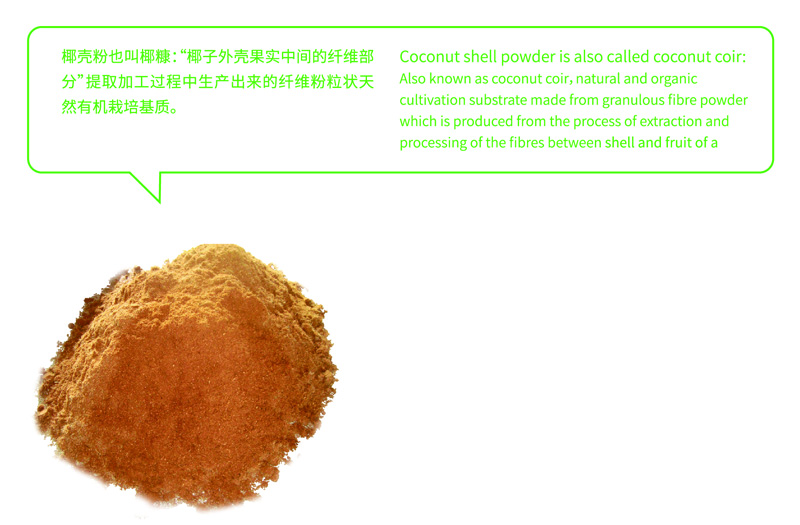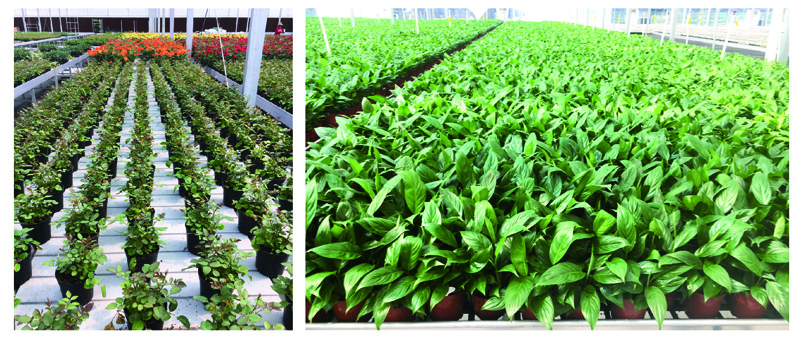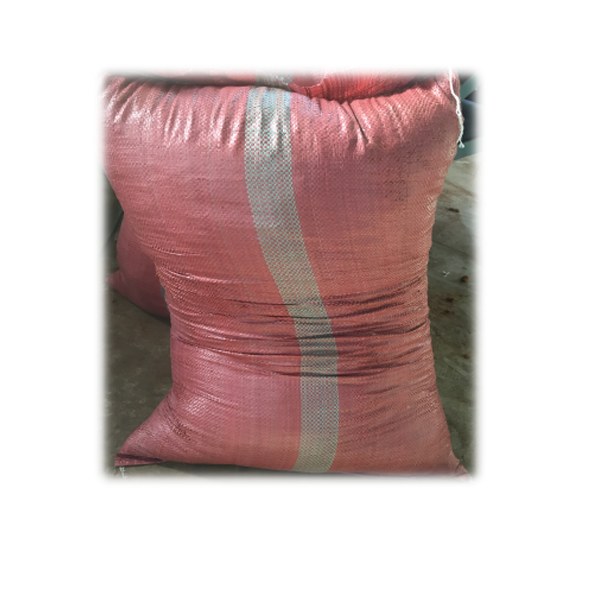EC | <3 ms/cm | Dry unit weight | 50 kg/m3 |
pH | 5.5-6.5 | Total porosity | 94% |
Temperature | <40℃ | Vapour void ratio | 85: 9 |
Impurities | <20% |
Name | Weight | Size | Volume | Packing |
Coconut powder | 13-15 kg | 60*100 cm | 90-100L/pack | Packed in PE bags |

Organic matter, pollution-free, green and environmentally friendly
Coconut powder is made from processed fibres of the mesocarp layer of coconut shell and it is a natural cultivation matrix. After being processed, it is free of grass seeds, pathogenic bacteria, nematode and worm eggs. It is safe to use.
Featuring subacidity, it has high buffer capacity to acid and alkali.
Coconut powder has appropriate pH value (about 6), cationic exchange capacity (about 32-95 mmol/100g) and electrical conductivity (<3 ms/cm).
It has low unit weight and considerable resilience.
Coconut powder is a light and porous material with high total porosity. Its unit weight is about 0.08 g/cm3. With light weight, it is convenient for transportation and use.
It boasts strong moisture preservation.
Coconut powder has strong moisture preservation and rewetting capabilities thanks to its sound porous structure with the total porosity as high as 94%.
After opening, mix it with peat, perlite and other materials or use it alone.
l It shall be pre-moisturized before being mixed or used alone. Pour it out, spray water onto it while stir it evenly to moisturize it to 40%-50% (i.e. when it is held as a ball in hand, it yields water between fingers which does not drip). Then put it into a container for use.

l Coconut powder contains a large quantity of lignin and cellulose, but it contains very low semi-cellulose content. Although it contains very few mineral elements which can be used by plants, especially N, Ca and Mg, it contains high content of P and K.
l Coconut powder is normally used as a raw material by being mixed with peat and other materials or used alone. If it is used as a medium alone, water and fertilizer management shall be strengthened because it has low nutrient content.
l Coconut powder contains a high proportion of water which can not be used, about 42%. Attention shall be paid to this in water management.
As a good and natural plant cultivation matrix material, coconut shell powder is widely used in forestry, the seedling growing, cutting and planting of fruit trees, vegetables and flowering plants, home gardening, soil improvement and other areas.




